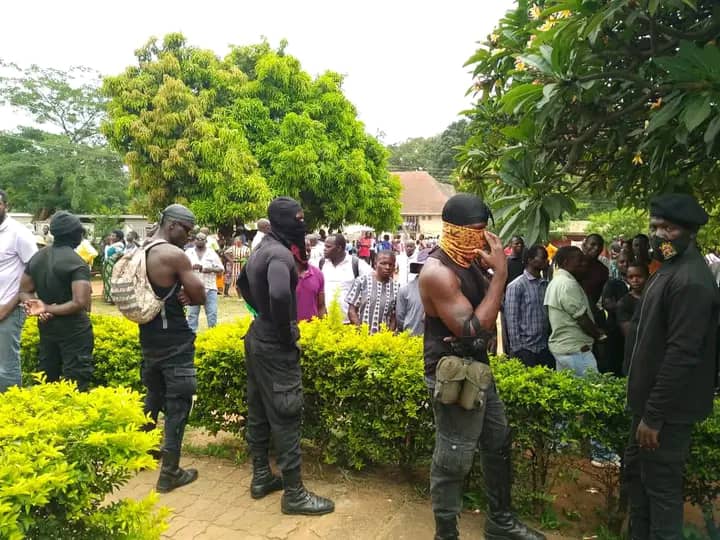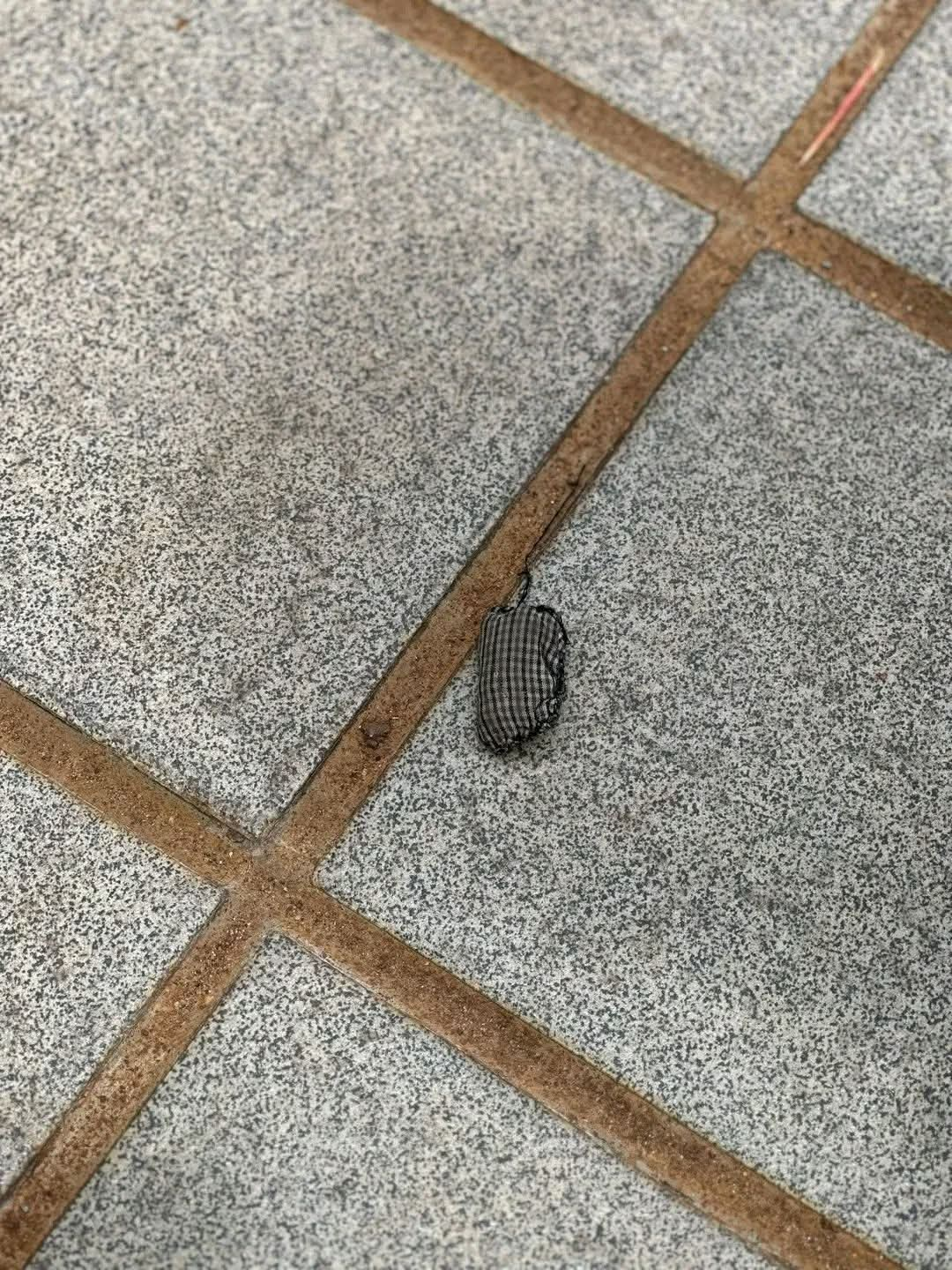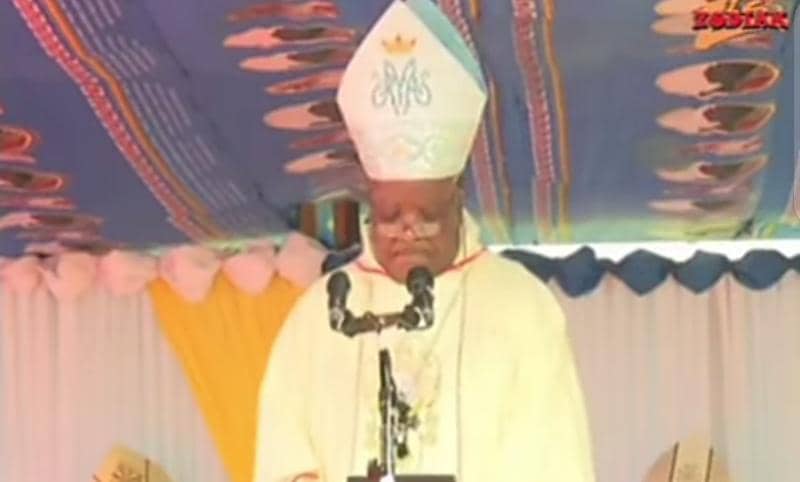By Malawi Freedom Network reporter
On January 13, 2025, a message shared by social commentator Stevie Kauka raised serious concerns about the presence of individuals dressed in army uniforms and carrying firearms outside the legal framework of Malawi’s security apparatus. According to Kauka, these individuals appeared in court while attending the trial of Alfred Gangata, a high-ranking member of the Democratic Progressive Party (DPP) and its vice president for the central region. Kauka expressed shock that these individuals, who were dressed in military attire and seemed to be operating as a private militia, could access the court with such intimidating presence.

The incident raises questions not only about the growing issue of private security forces but also about the state’s response to such developments, particularly under the current leadership of the Malawi Congress Party (MCP). What makes the situation even more alarming is the suggestion that the individuals involved were not affiliated with the official army but rather appeared to be operating as private or unauthorized security personnel, potentially raising concerns over security protocols, law enforcement, and the country’s growing political instability.
Private security forces and militias have long been a contentious issue in various parts of the world, especially when their actions seem to bypass national security regulations and undermine the rule of law. In the case of Malawi, the presence of individuals dressed in military uniforms and armed with firearms at a public setting such as a court raises a number of red flags.
Kauka’s message clearly underscores that the presence of such armed groups, particularly in the context of the ongoing political turbulence in Malawi, poses significant risks. While private security firms are regulated by the government, it is highly unusual and alarming to see private individuals wearing army uniforms, as this implies a form of militarization that could escalate tensions.
The fact that these individuals appeared at a court, an institution intended to uphold the rule of law, adds another layer of concern. It suggests that the government may not be doing enough to regulate private security firms or prevent the misuse of military uniforms and firearms by unauthorized individuals. This could potentially create an atmosphere of fear and intimidation, which undermines the legitimacy of the justice system.
Kauka’s message directed pointed criticism at the government of President Lazarus Chakwera, particularly the ruling MCP, questioning why the authorities appeared to be tolerating the presence of these private militias. The message suggests that the MCP government has been ineffective in addressing the growing influence of private security groups, allowing them to act with impunity and possibly serve as tools of political intimidation.
In a democratic society, the presence of unauthorized armed groups is unacceptable, and it is the government’s responsibility to ensure that security forces operate within the confines of the law. If the authorities allow such groups to operate unchecked, they risk creating a volatile environment that could spiral out of control, leading to further political instability and violence.
The issue of private militias and political intimidation is particularly sensitive in the context of Malawi’s upcoming 2025 elections. With political tensions running high and opposition parties accusing the ruling MCP of using heavy-handed tactics to suppress dissent, the presence of private militias at public institutions like the court could be perceived as a form of political coercion. The fear is that such actions could lead to further political violence, especially as the election period approaches.
In Malawi, security forces are meant to operate under strict regulation, and any individual or group engaging in activities that involve firearms or military attire without appropriate authorization should be investigated and penalized. The presence of private militias, especially those equipped with firearms, presents serious public security concerns.
As highlighted in a conversation shared by another individual in the chat, it is essential that private security personnel are well-trained and licensed to carry firearms, and that their activities are conducted in line with established security protocols. The fact that these individuals seem to be operating outside these norms is deeply concerning, especially in light of the country’s existing security laws.
As Malawi approaches its next elections, the issue of private militias and political intimidation will need to be addressed by the government and opposition alike. A failure to act decisively and promptly on this issue could lead to increased distrust in the government’s ability to maintain order and ensure the safety of its citizens.
Kauka’s message also alluded to comments from prominent political figures like Bakili Muluzi, Joyce Banda, Peter Mutharika, and Patrick Phaka, all of whom have held significant leadership positions in the past. It remains to be seen how these figures will respond to the growing concern over private militias and the security situation in Malawi, but their input could help frame the national dialogue around these issues.
In conclusion, the presence of private militias in Malawi, particularly in the context of court proceedings and political tensions, is a troubling development that demands immediate attention from the government and relevant authorities. The Malawi Congress Party (MCP) and President Chakwera’s administration must take strong action to ensure that the rule of law is upheld, and that any groups operating outside the law are held accountable. Without swift and decisive action, the risk of further instability could undermine the democratic values that Malawi is striving to protect, especially as the 2025 elections draw closer.




